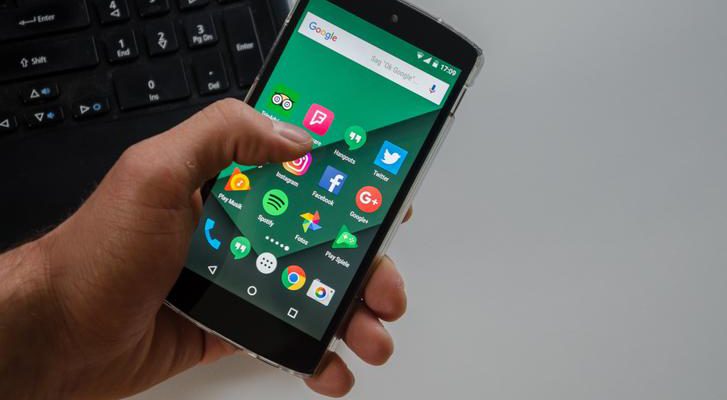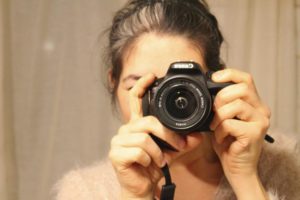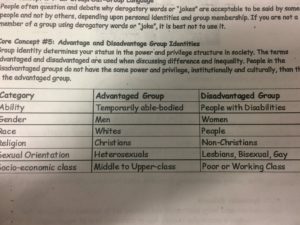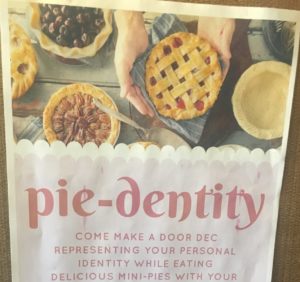How do you “self identify”?
See Campus Episodes (Part One) here.
Episode #1
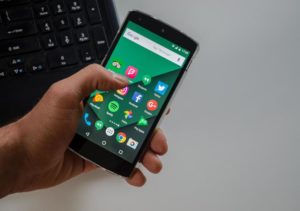 “Social media is an illusion where people try to control our image using people to value ourselves.” Our discussion was about why young people don’t feel like they are doing any good in their lives. Students, my young conversationalist contended, are depressed because they allow others to create expectations for them.
“Social media is an illusion where people try to control our image using people to value ourselves.” Our discussion was about why young people don’t feel like they are doing any good in their lives. Students, my young conversationalist contended, are depressed because they allow others to create expectations for them.
We accepted that there is undue and amplified distrust of others–anyone different from us. Participation, we agreed, was imperative to stop the flow of negative stereotypes. Activity in culture overturns attitudes about culture.
Technology has made us a neighborhood but we are missing brotherhood.
But what happens when we divide ourselves into categories?
Episode #2
“Our professor tells us not to paint people with a broad-brush and then sends us this.” Her text included this picture:
“Broad-brush” indeed. Comenius students and I often interact with what university professors call “binaries.” A binary is splitting an idea or discussion in two: black/white, up/down, back/front. “Binary” is also a code word for oversimplification. Usually teachers don’t like binaries since nothing in life is so easily explained.
 The list in the picture is a perfect example of binary thinking. But is life so easily categorized? My student friend and I agreed that the first order of business is defining terms. What do we mean when we say words like “ability,” “race,” “gender,” or “socio-economic status”?
The list in the picture is a perfect example of binary thinking. But is life so easily categorized? My student friend and I agreed that the first order of business is defining terms. What do we mean when we say words like “ability,” “race,” “gender,” or “socio-economic status”?
If we listed ALL the categories of “advantage” available to everyone there would be far more groups to include. Many of the groups would overlap with each other. To limit the categories is its own form of advantage, bias, and prejudice.
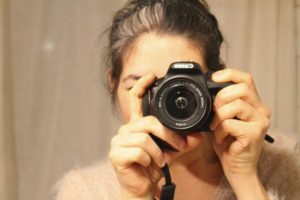 If the idea is to identify groups in such a simplistic fashion what do we do with “identify” itself?
If the idea is to identify groups in such a simplistic fashion what do we do with “identify” itself?
I did not have to wait long to find out.
Episode #3
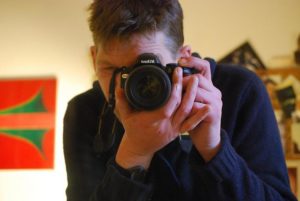 “Identity” in 2018 is now left solely up to the individual. You can claim to be whatever you want to be. Sexual identity has expanded beyond biology. Culture now defines “sex” and “gender” as dependent upon peoples’ view of themselves. “Self identity” is not fixed but fluid.[1]
“Identity” in 2018 is now left solely up to the individual. You can claim to be whatever you want to be. Sexual identity has expanded beyond biology. Culture now defines “sex” and “gender” as dependent upon peoples’ view of themselves. “Self identity” is not fixed but fluid.[1]
Another student text message had me viewing this picture:
Campus groups, it comes as no surprise, want to explore personal identity.
 When I was growing up the phrase was “I just want to find myself.” Today, “self-identity” is not simply an individual discovery. In this case “binary” does not apply. There is no such thing as genders being “male” or “female” [see one student’s campus story here]. Biology can no longer dictate scientific boundaries when it comes to a student’s desire to “be who they want to be.” As CBS News indicates, definitions for “sex” and “gender” are fluid [story here].
When I was growing up the phrase was “I just want to find myself.” Today, “self-identity” is not simply an individual discovery. In this case “binary” does not apply. There is no such thing as genders being “male” or “female” [see one student’s campus story here]. Biology can no longer dictate scientific boundaries when it comes to a student’s desire to “be who they want to be.” As CBS News indicates, definitions for “sex” and “gender” are fluid [story here].
“Categories,” “advantage,” and “identity” are words being defined on college campuses today. I LOVE talking with Christian young people at college about their studies and what they are hearing in the classroom and around campus.
 Dr. Mark Eckel is President of The Comenius Institute (website), spends time with Christian young people in public university (1 minute video), hosts a weekly radio program with diverse groups of guests (1 minute video), interprets culture from a Christian vantage point (1 minute video), and teaches at his church (video).
Dr. Mark Eckel is President of The Comenius Institute (website), spends time with Christian young people in public university (1 minute video), hosts a weekly radio program with diverse groups of guests (1 minute video), interprets culture from a Christian vantage point (1 minute video), and teaches at his church (video).
Picture credit: snappygoat.com
[1] Dastagir, Alia E. “’Born this way’? It’s way more complicated than that” USA Today Online 15 June 2017 https://www.usatoday.com/story/news/2017/06/16/born-way-many-lgbt-community-its-way-more-complex/395035001/

